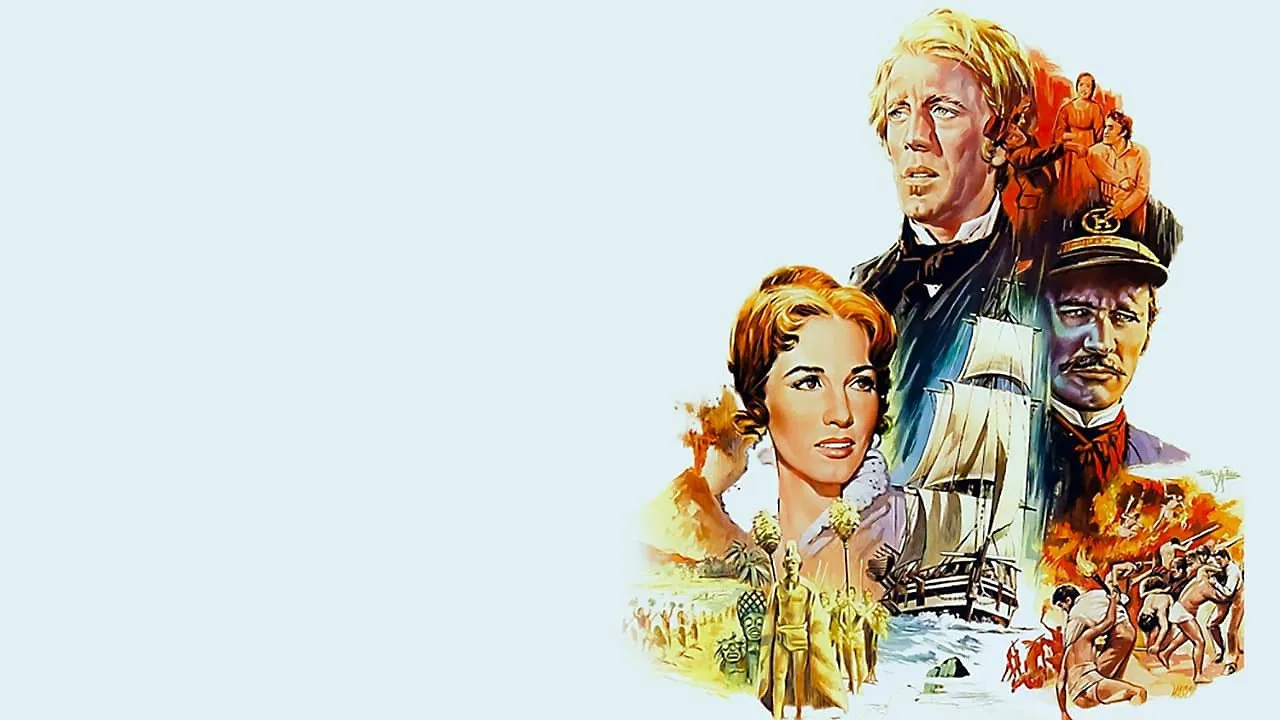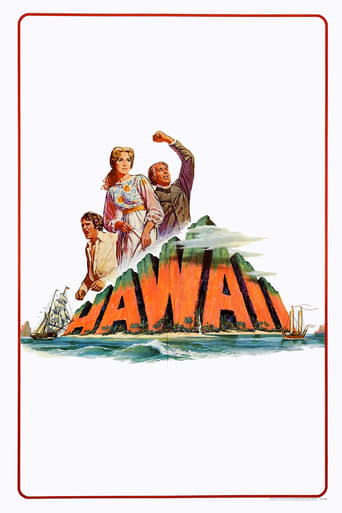

Sorry, this movie sucks
... View MoreInstead, you get a movie that's enjoyable enough, but leaves you feeling like it could have been much, much more.
... View MoreThe thing I enjoyed most about the film is the fact that it doesn't shy away from being a super-sized-cliche;
... View MoreI enjoyed watching this film and would recommend other to give it a try , (as I am) but this movie, although enjoyable to watch due to the better than average acting fails to add anything new to its storyline that is all too familiar to these types of movies.
... View MoreSeems like Marlon Brando should have been in this film. I don't know what part he could have played, but maybe a part (only a major part for my Marlon) could have been made up for Marlon. At any rate, I would not have wanted him to portray Abner Hale or any of those other stodgy, uptight ministers, lol. Maybe Marlon's character could have gone for Julie Andrews, then killed Hale the ignorant preacher-man. I have read the enormous novel upon which this film is based. This movie seems long, but the novel is gigantic. The beginning of this book goes on forever in describing the history of Hawai'i, before the white man ever arrived. It also tells lengthy litanies about the origins of the native gods and indigenous beliefs. The missionaries wanted to claim these islands for their religion. This film goes to great lengths to illustrate that. I have been to Hawai'i. I saw their beautiful beaches and exotic plants. The weather is breathtaking. I visited Honolulu, and toured a beautiful museum wherein were displayed artifacts from the lives of late 19th-century Hawai'ian royalty. It seems that by that time, in real life, the royal family of Hawai'i had intermarried with white business and political figures. The white people were building agricultural empires there, for example enormous pineapple production (famous canned pineapple brand names you have heard of). The British also were interlopers in the islands. The Hawai'ian royal family seemed to like the British 19th Victorian fashions and polite manners more than they liked the Americans and their less elegant ways, but the island nation eventually became an American state. The last queen of Hawai'i had been forced to abdicate. She had been married to a white man. I also saw a display there of a life-size figure of James Michener, sitting in a white tent and typing the novel "Hawaii" on his manual typewriter. Did white people ruin Hawai'i? I hope not. It is a beautiful place. I hope to visit there again soon. Observations: Malama (Alii Nui) stole the show, in this film. 10/10
... View MorePrince Keoki Kanakoa pleads for the promised word of God. Humorless stiff Abner Hale (Max von Sydow) and his newly married wife Jerusha (Julie Andrews) join him on the treacherous voyage to Hawaii. They meet the aliʻi nui, Keoki's mother Malama in Lahaina, Maui. She takes Jerusha to teach her writing. The permissive sexuality, native traditions on marriages and other practices cause a rift between Abner and the natives. Abner demands that Malama end her marriage to her brother which is the custom at the time. Capt. Rafer Hoxworth (Richard Harris) and his whalers cause disruptions. Rafer was actually Jerusha's love but she had assumed he stopped writing. He insists otherwise and vows never to pass on other women again. Malama installs strict new laws and the whalers riot. Brother John Whipple (Gene Hackman) leaves the church after marrying brother Abraham to a native which caused Abraham to be expelled.This is one part of the James A. Michener's epic novel Hawaii. It's still too big and should have followed Jerusha instead. Abner is an unpleasant man to center a movie around. Her story is much more fascinating anyways. She's actually the center of every relationship in the movie. It would allow Richard Harris to be introduced earlier. She should not be reduced to a simple dutiful wife. It's more compelling to see her navigate her restricted roles in an expanded world. These are great actors and Jocelyne LaGarde is a real find.
... View MoreBreaking out of the mold of singing nannies, Julie Andrews plays a Bostonian socialite who marries a missionary (Max Von Sydow) and heads to the wilds of Hawaii where her husband works on converting the natives to Christianity. A ship's captain (Richard Harris) sets his sights on the lovely but fragile Andrews which tests the sanctity of marriage. Obsessed with converting what he believes to be a sinful life of the very sexual natives, Von Sydow neglects his wife, leading to tragedy and a climactic confrontation between Von Sydow and Harris. The fact that Harris would go on to play King Arthur in the film version of "Camelot" while Andrews was unable to reprise her role as Guenevere makes this an interesting pairing during this time.Beautiful to look at and superbly acted, this takes James Michener beyond the tales of the South Pacific and Bali Hai to what would later become America's 50th State. Andrews totally underplays her role here after flamboyantly playing Mary Poppins and Maria Von Trapp, so this is a nice change of pace for her. Von Sydow is a bit hammy in spots, but if you consider the type of character he is playing, that is not entirely out of place. The acting honors go to Jocelyn La Garde, the Hawaiian born native chosen to play the last Queen. Speaking her few English language lines phonetically, the hefty La Garde is lovable, touching and fierce. And yes, that is Carroll O'Connor, the future Archie Bunker here, playing Andrews' father.This also contains one of the most beautiful music scores (by Elmer Bernstein) to grace an epic film of the 1960's, one you'll not soon forget. While some of the historical references have been questioned in regards to their accuracy, the film paints a realistic portrayal of the hardships faced by mainland Americans as they face the elements of a land they can never quite understand. This is the type of film that should be given occasional big screen re-releases so today's audiences can see how epics used to be made without resulting in headaches due to overpowering sound and computer generated effects.
... View MoreThe film begins in 1819. When we first hear about Jerusha (Julie Andrews), she is a "Christian girl of 22." Later, her tombstone (the spoiler in this message) reads: "1799 - 1834". Do the math: she must have been 19 or 20 in 1819.This film is an amazing hodgepodge of sometimes good writing and often bad acting. The pre-credit sequence, a narration of how people first came to Hawaii 800 or so years ("30 generations") before, is quite poetic and visually stunning. But much of the acting is stiff and passion-less. (Do look for Carroll O'Connor - very good in a small part at the beginning as Jerusha's father.) The film uses one fascinating (and very effective) device: some scenes end with the first few lines of dialog of the next scene coming up "early", as a way of propelling the film forward. Considering how avant garde this is, it's surprising this has not been used in any other mainstream films -- at least none that I know of. (I recently purchased the DVD because I was interested in seeing the film with captions (CC). It is missing about 15-20 minutes, most of it from the ocean voyage towards the beginning of the film. No special features to speak of.)
... View More